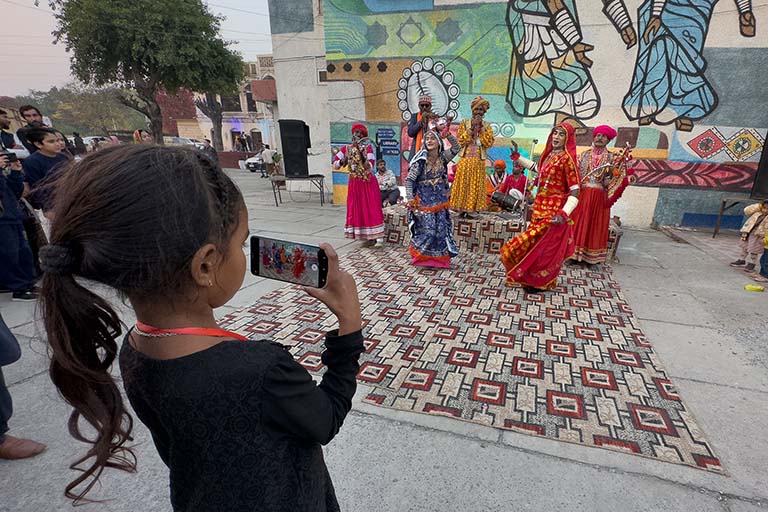
In November 2022, Harvard ethnomusicologist, Dr. Richard K. Wolf invited IU Archives of Traditional Music Director Dr. Alan Burdette to travel to several institutions in Pakistan to hold a series of conversations about audiovisual media archiving. Dr. Wolf is an expert in South Asian music who has deposited some of his fieldwork recordings at the Archives of Traditional Music. In addition, he had worked with Dr. Burdette and ATM staff on the EVIA Digital Archive Project two decades prior. Dr. Burdette knew that Pakistan has been relatively uninvolved in international discussions about media preservation and saw the trip as an excellent opportunity to find out more about what is happening there, to learn more about their needs, and to share some of the expertise that Indiana University and the Archives of Traditional Music have developed in the past 20 years.
The two primary goals of the trip were to engage in a series of presentations and conversations about media preservation and archiving with scholars, broadcasters, and musicians, and to present Wolf’s film, “Two Poets and a River” to audiences in Pakistan. Wolf has conducted research on traditional music in South Asia for 25 years and his collection of Kota music and dance recordings are deposited at ATM (05-078-F). His recent film is about two Wakhi traditional poets and their communities, separated by the nearly impenetrable modern political border marked by the Oxus River – one living in Tajikistan, and the other in Afghanistan. Dr. Burdette gave presentations on media preservation and the work of the Archives of Traditional Music to audiences at the American Institute of Pakistani Studies in Islamabad, faculty at the National College of Arts in Lahore, and staff at Radio Pakistan in Multan. While they were there, Burdette and Wolf also visited Pakistan’s traditional culture festival at the National Institute of Folk and Traditional Heritage-Lok Virsa لوک ورثہ, and visited with well-known singers Suraiyya Multanika and Rahat Bano Multanikar.
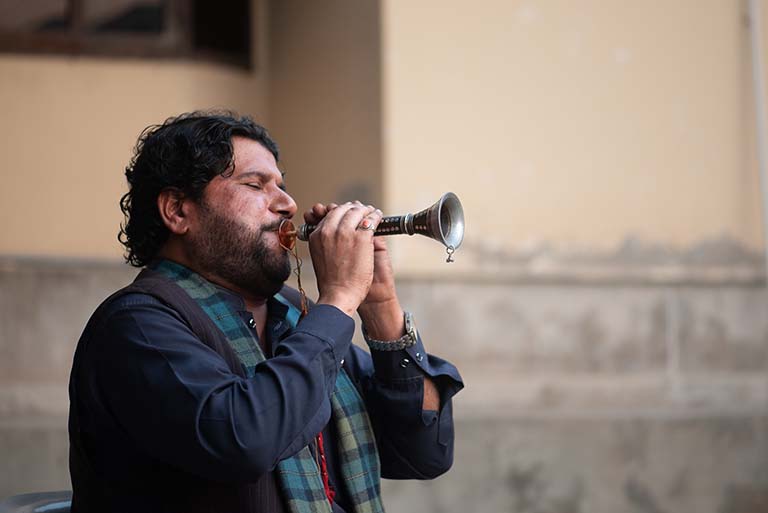
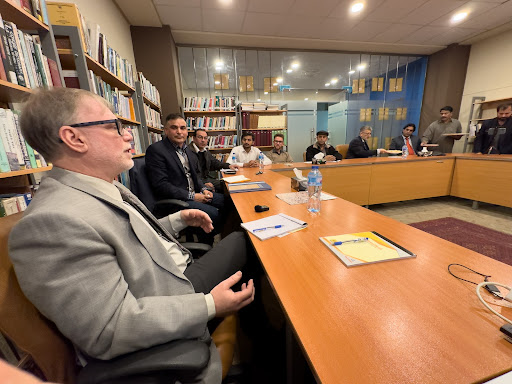
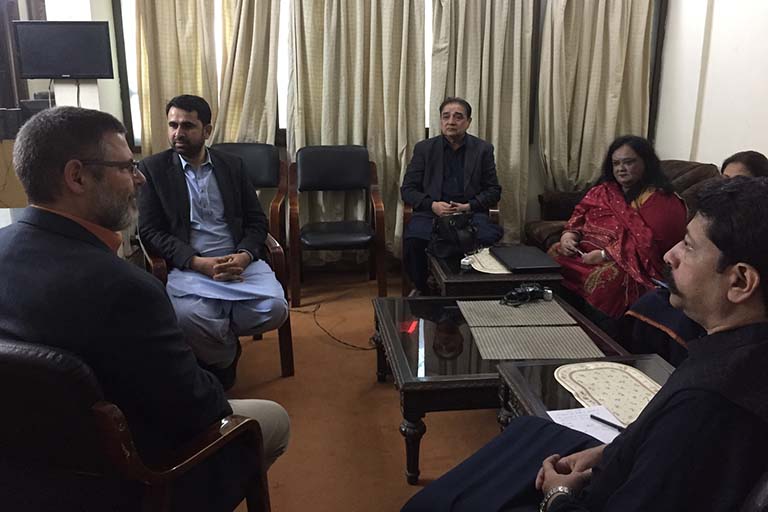
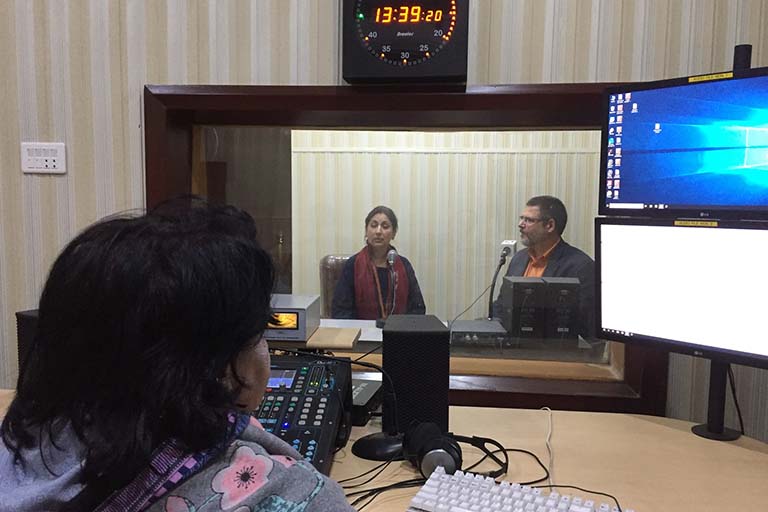
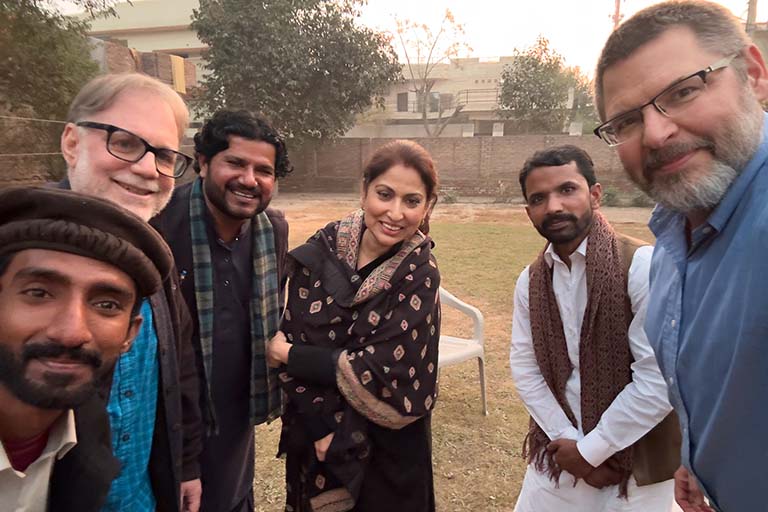
Indiana University has been a trailblazer among its peers in the arena of media preservation. The Media Digitization and Preservation Initiative, which ran from 2013 to 2020, digitally preserved more than 350,000 audio, video, and film items held at Indiana University. The planning process began in 2008, when ATM’s Director, Alan Burdette, and Associate Director, Mike Casey, began discussing the possibility of a coalition of media holding units at IU to create an economy of scale that would make the digital preservation of these collections feasible. With Mike Casey’s experience leading the Sound Directions project for audio preservation at ATM, and Alan Burdette’s experience leading the EVIA Digital Archive Project exploring video preservation and annotation, they were able to convince a core group of librarians, archivists, and administrators at IU to come together and work through the challenges of media preservation on a mass scale. At the time of this writing, IU remains the only university in the United States to digitally preserve their AV holdings on this scale.
It is the hope of Dr. Wolf, Dr. Burdette, and many others in Pakistan that this trip will lead to further efforts to preserve the audiovisual documentation of traditional and classical arts in Pakistan. Discussions have begun about practical follow up steps and a systematic assessment of needs and the state of audiovisual holdings.
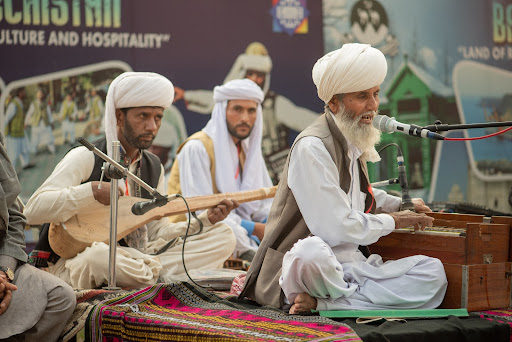
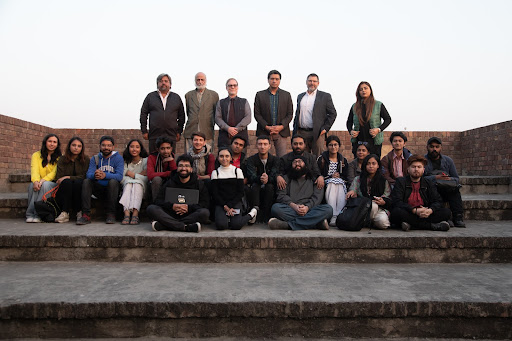
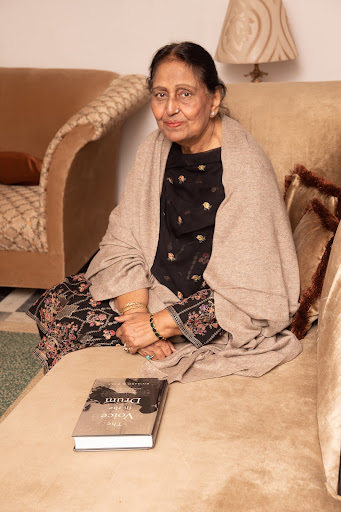
Leave a Reply